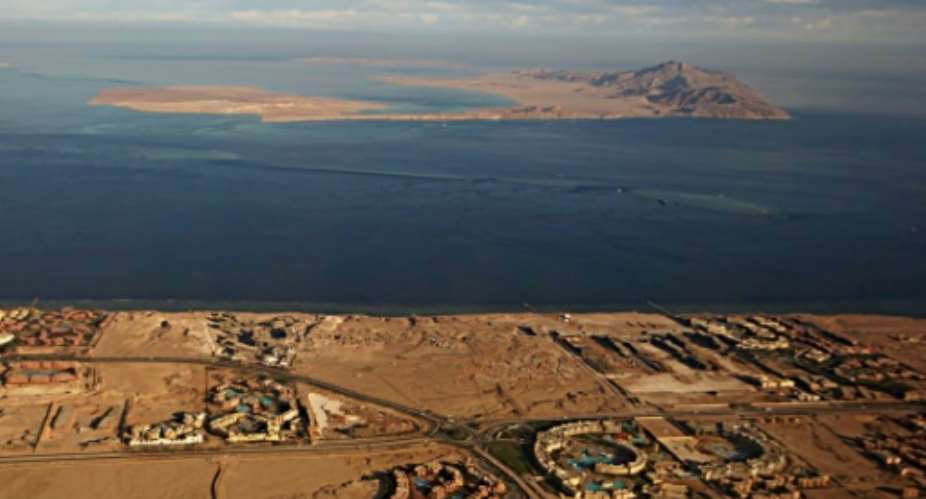Cairo (AFP) - Cairo will do all it can to preserve crucial ties with Saudi Arabia, experts say, after an Egyptian court ruled against government plans to transfer control of two islands to Riyadh.
Strains between the two Sunni Arab allies have grown in recent months, in particular over Cairo's less-than-enthusiastic support for Saudi efforts in Syria and Yemen.
Monday's ruling -- which saw Egypt's top administrative court block the transfer of the Red Sea islands to Saudi Arabia -- is likely to fuel concerns in Riyadh.
Still, analysts say Egypt's government, which relies on Riyadh for vital financial backing, will take steps to ensure the dispute does not escalate further.
"The government will not spare any effort to implement the (islands) agreement," says Mostafa Kamel el-Sayed, a political science professor at Cairo University.
The Egyptian government "will use all legal means available for achieving that, whether at the constitutional court or the parliament," Sayed says.
Neither government has so far commented on the ruling, which upheld a previous court decision that the two islands -- Tiran and Sanafir -- are sovereign Egyptian territories.
 The deal to hand over the Red Sea islands of Tiran (foreground) and Sanafir (background) to Saudi Arabia provoked accusations that Cairo had "sold" the strategic islands
The deal to hand over the Red Sea islands of Tiran (foreground) and Sanafir (background) to Saudi Arabia provoked accusations that Cairo had "sold" the strategic islands
The deal to hand over the islands, signed during a visit last April by Saudi King Salman in which Riyadh showered Egypt with aid, provoked accusations that Cairo had "sold" the strategic islands.
President Abdel Fattah al-Sisi's government had appealed the earlier court ruling blocking the sale and is likely to appeal the latest decision on consitutional grounds.
"The Egyptian authorities will try to calm the situation and prevent an escalation," parliamentarian Samir Ghattas says.
In an interview carried out on Sunday with state-run newspapers and published on Tuesday Sisi called for "unity" and "understanding" between Egypt and its Saudi "brothers".
Riyadh has provided billions of dollars in aid and credit to Egypt since then-army chief Sisi overthrew Islamist president Mohamed Morsi in 2013.
Alternative backers
 An Egyptian woman celebrates after the High Administrative Court voted to void a government agreement to hand over the two Red Sea islands of Tiran and Sanafir to Saudi Arabia
An Egyptian woman celebrates after the High Administrative Court voted to void a government agreement to hand over the two Red Sea islands of Tiran and Sanafir to Saudi Arabia
Saudi Arabia is also one of Egypt's main trading partners and any cooling in relations could become "a difficult economic challenge" for Cairo, says a government official speaking on condition of anonymity.
Riyadh has already backtracked on one of the deals it signed in April without offering an explanation, with the oil giant Saudi Aramco suspending monthly deliveries of 700,000 tonnes of petroleum products to Egypt since October.
The suspension came a few days after Egypt voted in favour of a Russian-drafted UN Security Council resolution on Syria that Riyadh strongly opposed.
Economist Ibrahim al-Ghitani says Egyptian authorities are aware of their vulnerability, and have begun to seek alternative backers.
"The Egyptian government has already begun to seek an alternative in this area: an agreement has been reached with Kuwait, and negotiations with Iraq have reached a very advanced stage," Ghitani says.
In another possible sign of tensions, a Saudi delegation in December visited a massive hydroelectric dam being built on the Nile in Ethiopia -- a project which seriously worries Egypt as the river provides more than 90 percent of its water.
"The idea that we can count on Saudi Arabia as an economic partner for Egypt has started to fade," Ghitani says.
It is unclear how concerned officials are in Riyadh following the latest ruling.
Anwar Eshki, a retired Saudi general and founder of the independent Middle East Centre for Strategic and Legal Studies in Jeddah, says there is "no problem between Saudi Arabia and Egypt" about the decision.
"This is an internal affair," he says, describing the court battles as a reflection of domestic Egyptian struggles.
In Tuesday's edition of Saudi Arabia's Arab News, editor-in-chief Faisal Abbas also played down the dispute, saying that contrary "to some local media", Saudi Arabia "remains one of Egypt's biggest allies".
"The issue of Tiran and Sanafir will pass sooner or later," he wrote.





 Dumsor: Don't rush to demand timetable; the problem may be temporary — Atik Moha...
Dumsor: Don't rush to demand timetable; the problem may be temporary — Atik Moha...
 Space X Starlink’s satellite broadband approved in Ghana — NCA
Space X Starlink’s satellite broadband approved in Ghana — NCA
 2024 election will be decided on the grounds of the economy; choice of running m...
2024 election will be decided on the grounds of the economy; choice of running m...
 Dumsor: We're demanding less; just give us a timetable — Kwesi Pratt to ECG
Dumsor: We're demanding less; just give us a timetable — Kwesi Pratt to ECG
 Do I have to apologise for doing my security work, I won’t – Simon Osei-Mensah r...
Do I have to apologise for doing my security work, I won’t – Simon Osei-Mensah r...
 All my businesses have collapsed under Akufo-Addo — NDC Central regional chair
All my businesses have collapsed under Akufo-Addo — NDC Central regional chair
 Military, Prison Officers clash in Bawku, three injured
Military, Prison Officers clash in Bawku, three injured
 GRA-SML contract: MFWA files RTI request demanding KPMG report
GRA-SML contract: MFWA files RTI request demanding KPMG report
 Court threatens to call second accused to testify if NDC's Ofosu Ampofo fails to...
Court threatens to call second accused to testify if NDC's Ofosu Ampofo fails to...
 Family accuses hospital of medical negligence, extortion in death of 17-year-old...
Family accuses hospital of medical negligence, extortion in death of 17-year-old...
